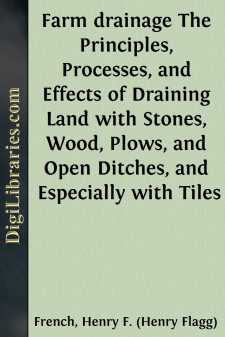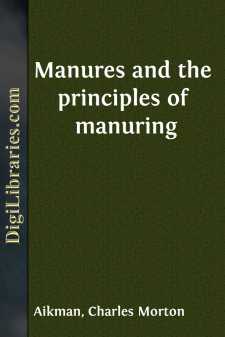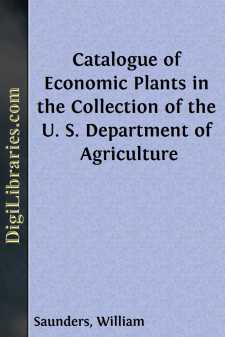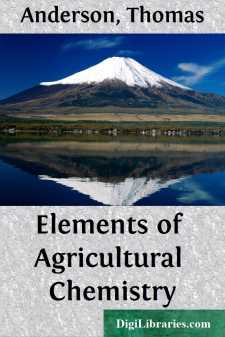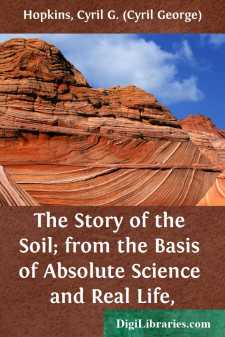Categories
- Antiques & Collectibles 13
- Architecture 36
- Art 48
- Bibles 22
- Biography & Autobiography 813
- Body, Mind & Spirit 142
- Business & Economics 28
- Children's Books 17
- Children's Fiction 14
- Computers 4
- Cooking 94
- Crafts & Hobbies 4
- Drama 346
- Education 46
- Family & Relationships 57
- Fiction 11829
- Games 19
- Gardening 17
- Health & Fitness 34
- History 1377
- House & Home 1
- Humor 147
- Juvenile Fiction 1873
- Juvenile Nonfiction 202
- Language Arts & Disciplines 88
- Law 16
- Literary Collections 686
- Literary Criticism 179
- Mathematics 13
- Medical 41
- Music 40
- Nature 179
- Non-Classifiable 1768
- Performing Arts 7
- Periodicals 1453
- Philosophy 64
- Photography 2
- Poetry 896
- Political Science 203
- Psychology 42
- Reference 154
- Religion 513
- Science 126
- Self-Help 84
- Social Science 81
- Sports & Recreation 34
- Study Aids 3
- Technology & Engineering 59
- Transportation 23
- Travel 463
- True Crime 29
Farm drainage The Principles, Processes, and Effects of Draining Land with Stones, Wood, Plows, and Open Ditches, and Especially with Tiles
Categories:
Description:
Excerpt
CHAPTER I.
INTRODUCTORY.
Why this Treatise does not contain all Knowledge.—Attention of Scientific Men attracted to Drainage.—Lieutenant Maury's Suggestions.—Ralph Waldo Emerson's Views.—Opinions of J. H. Klippart, Esq.; of Professor Mapes; B. P. Johnston, Esq.; Governor Wright, Mr. Custis, &c.—Prejudice against what is English.—Acknowledgements to our Friends at Home and Abroad.—The Wants of our Farmers.
A Book upon Farm Drainage! What can a person find on such a subject to write a book about? A friend suggests, that in order to treat any one subject fully, it is necessary to know everything and speak of everything, because all knowledge is in some measure connected.
With an earnest endeavor to clip the wings of imagination, and to keep not only on the earth, but to burrow, like a mole or a sub-soiler, in it, with a painful apprehension lest some technical term in Chemistry or Philosophy should falsely indicate that we make pretensions to the character of a scientific farmer, or some old phrase of law-Latin should betray that we know something besides agriculture, and so, are not worthy of the confidence of practical men, we have, nevertheless, by some means, got together more than a bookfull of matter upon our subject.
Our publisher says our book must be so large, and no larger—and we all know that an author is but as a grasshopper in the hands of his publisher, and ought to be very thankful to be allowed to publish his book at all. So we have only to say, that if there is any chapter in this book not sufficiently elaborate, or any subject akin to that of drainage, that ought to have been embraced in our plan and is not, it is because we have not space for further expansion. The reader has our heartfelt sympathy, if it should happen that the very topic which most interests him, is entirely omitted, or imperfectly treated; and we can only advise him to write a book himself, by way of showing proper resentment, and put into it everything that everybody desires most to know.
A book that shall contain all that we do not know on the subject of drainage, would be a valuable acquisition to agricultural literature, and we bespeak an early copy of it when published.
Irrigation is a subject closely connected with drainage, and, although it would require a volume of equal size with this to lay it properly before the American public, who know so little of water-meadows and liquid-manuring, and even of the artificial application of water to land in any way, we feel called upon for an apology for its omission.
Lieutenant Maury, whose name does honor to his nation over all the civilized world, and on whom the blessings of every navigator upon the great waters, are constantly showered, in a letter which we had the honor recently to receive from him, thus speaks of this subject:
"I was writing to a friend some months ago upon the subject of drainage in this country, and I am pleased to infer from your letter, that our opinions are somewhat similar. The climate of England is much more moist than this, though the amount of rain in many parts of this country, is much greater than the amount of rain there. It drizzles there more than it does here. Owing to the high dew point in England, but a small portion only—that is, comparatively small—of the rain that falls can be evaporated again; consequently, it remains in the soil until it is drained off. Here, on the other hand, the clouds pour it down, and the sun sucks it up right away, so that the perfection of drainage for this country would be the very reverse, almost, of the drainage in England. If, instead of leading the water off into the water-veins and streams of the country, as is there done, we could collect it in pools on the farm, so as to be used in time of drought for irrigation, then your system of drainage would be worth untold wealth. Of course, in low grounds, and all places where the atmosphere does not afford sufficient drainage by evaporation, the English plan will do very well, and much good may be done by a treatise which shall enable owners to reclaim or improve such places."
Indeed, the importance of this subject of drainage, seems all at once to have found universal acknowledgement throughout our country, not only from agriculturists, but from philosophers and men of general science....


